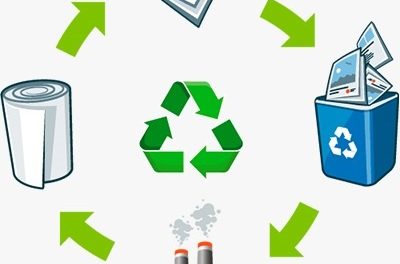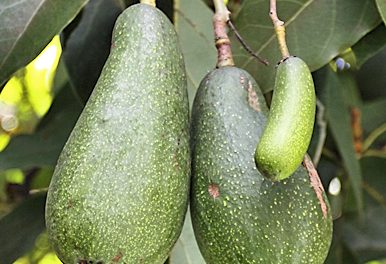Pollution comes in many forms and impacts our global health, climate, food sources, drinking water and more. Researchers refer to the deterioration and degradation of the earth’s landmasses and soil as land pollution. The activities that cause land pollution can also result in other forms of pollution as well, which is why researchers study ways to solve land pollution and decrease waste.

Land Pollution
Causes of Land Pollution
Many different forms of land pollution exist today. Solid waste is one of the most visible and polarizing forms of land pollution, usually in the form of garbage or litter. Agricultural endeavors also result in significant land, water and air pollution. Additionally, deforestation contributes to soil degradation and chemical land pollution. Finally, mining for various non-renewable resources also contributes to land pollution.
Reduce Waste
You can reduce your footprint in terms of land pollution, and reduce your overall impact on the planet, by using resources sparingly to minimize waste. By conserving available resources, you can help to reduce the amount of waste disposed of in landfills; this decomposing waste produces toxic gases and liquids, such as methane and leachates. In addition, waste can lead to littering when people fail to implement proper waste management practices.

Reduce Waste
According to the Department of Energy, you can also minimize pollution by practicing judicious use of nonrenewable resources, such as oil and gasoline.
Reducing Garbage and Litter
One of the foremost ways to solve land pollution is to reduce waste. The phrase ‘reduce, reuse, recycle’ still holds true! Both managed waste (such as properly disposed of garbage) and unmanaged waste (litter) can result in pollution. As waste products break down they can release chemicals into the soil, and additionally into the air and water.
You can help reduce the impacts of garbage and littering by recycling as much as possible and by using reusable objects like shopping bags, straws and water bottles. Participating in clean-ups at beaches and parks can also help by removing litter from our ecosystems.
Other ways to help include pressuring large companies to reduce their waste, as industrial waste contributes a large portion of the garbage created every year.
Reducing Agricultural Pollution
Agriculture is an absolutely necessary component of our day-to-day lives, but it also contributes to a huge amount of pollution. Researchers estimate that about half of the land in the United States is used

effect of Agricultural Pollution
for farming. The byproducts from the process of growing produce or raising livestock can impact the soil as well as the waterways and the air.
Methods for solving the problem of land pollution from agricultural production vary. Companies can dedicate time and money to reducing their environmental impact by using safer pesticides and fertilizers and by reducing soil erosion and runoff by using smarter, more sustainable practices.
You can help reduce agricultural pollution by supporting more small-scale local farmers – ensuring they use environmentally friendly practices first, of course!
Reducing Deforestation
Deforestation has devastating impacts on our environment, both on a local scale and a global scale. Much of our global deforestation occurs to make room for agricultural production, though urban growth does factor into the equation. When farmers or companies remove the trees from an area, it leaves the soil exposed and removes all of the roots and vegetation that were previously holding it in place, leading to erosion.

Supporting more sustainable farming practices can help reduce deforestation. Reforestation is also a great option for reducing the impacts of deforestation. Re-planting trees can mitigate soil erosion and replace lost ecosystems in the process.
You can also help by reducing your use of paper products and using wood products from companies with sustainable practices (see Resources section).
Reducing Mining Pollution
Mining for various non-renewable resources, such as oil and minerals, also results in land pollution. The

Effect of Mining Pollution
actual physical process of mining damages the soil and surrounding area. It also often results in chemical pollution of the soil and groundwater in the area.
The best way to reduce mining pollution, while also contributing to one of the best ways to solve land pollution, is to support renewable resources. Companies and governments can increase investments in renewable resources like solar and wind power while decreasing mining activities. These practices not only help the environment and reduce pollution, but they also create new jobs as well.
Recycle and Reuse to Stop Pollution
Recycling and reusing resources whenever possible reduces waste, cuts land pollution and saves you money. According to DoSomething.org, recycling averted the dumping of 85 million tons of material in

Recycle and Reuse
2010. In line with such statistics, the Environmental Protection Agency encourages you to recycle available resources to reduce soil pollution and minimize the cost of buying raw materials and managing waste. Local and state-sponsored materials and wastes exchanges can help you do this.
Avoid Use of Chemicals in Farming
The Department of Agriculture encourages farmers to use biological pest control methods rather than using pesticides. The use of natural pest control methods reduces soil toxicity. For example: you could release parasitic and predatory insects, such as certain nematodes and lacewings, as a natural means of controlling insect pests in your garden or farm. Other ways to minimize pollution include the use of animal manures instead of inorganic fertilizers, which avoids overloading the soil with nutrients such as nitrogen and phosphorus that are found in “conventional” inorganic fertilizers.
Buy Organic Products
Buying organic products is one of the easiest ways to minimize pollution in the soil. Organic food is produced without the use of artificial fertilizers and pesticides that are often used in to get favorable results in conventional agriculture. If more people buy organic products the demand for nonorganic food will decline, which means less reason and opportunity to use those fertilizers and pesticides that contribute to land pollution.
Reference
https://sciencing.com/minimize-land-pollution-23298.html










